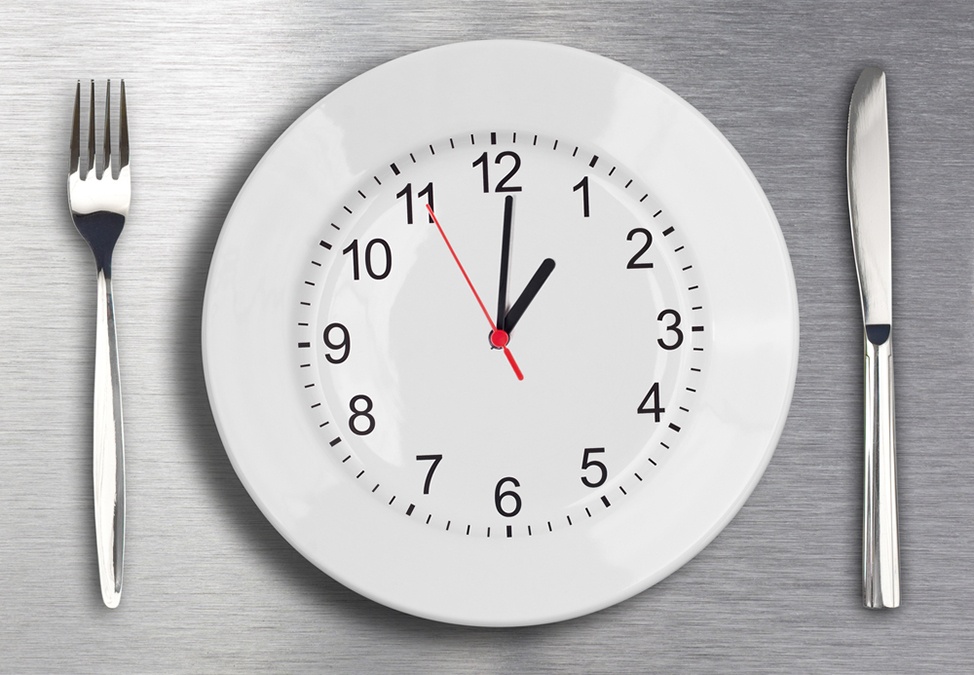 If you have high cholesterol, and especially if your LDL (bad) cholesterol is high, chances are you’ve been told to drastically change what you eat.
If you have high cholesterol, and especially if your LDL (bad) cholesterol is high, chances are you’ve been told to drastically change what you eat.
Pretty much cut out everything you like and load up on the food you hate, right?
But a new study published in the journal Nutrition, Metabolism & Cardiovascular Diseases reveals that you can normalize your cholesterol by just shifting WHEN you eat, and this can be done without making any changes to your diet.
A team of scientists analyzed the information of 1,283 adults that were collected by Taiwan’s Nutrition and Health Survey. 44.4 percent of them were female and the rest were male.
They asked the participants to recall the details of their daily food intake, including the exact dishes, snacks, and meal times, and also tested the participant’s cholesterol and blood fats.
Here are how people ate on the average:
1. Morning breakfast: 05:00 to 09:29, 385 calories.
2. Mid-morning snack: 09:30 to 11:29, 123 calories.
3. Noon lunch: 11:30 to 13:39, 522 calories.
4. Afternoon snack: 13:30 to 17:29, 171 calories.
5. Evening dinner: 17:30 to 20:30, 557 calories.
6. Nighttime snack: 20:30 to 04:59, 169 calories.
From this table, you can see that their diets were rather light in the mornings and increasing to heavy in the evenings, with a surprising amount of snacking during the night.
Now, the interesting discoveries:
1. Those who snacked more than 100 calories during the night had 0.94 mg/dL higher LDL cholesterol than those who did not.
2. Those who snacked more than 100 calories of fat during the night had 2.98 mg/dL higher LDL cholesterol than those who did not.
3. Those who ate 100 extra calories in the morning or noon instead of eating them as a nighttime snack dropped their LDL cholesterol by 1.46 mg/dL (morning) and 1.27 mg/dL (noon).
4. Those who ate 100 extra calories of fat at noon or in the evening instead of eating them as a nighttime snack dropped their LDL cholesterol by 5.21 mg/dL (noon) and 3.19 mg/dL (evening).
Why is the timing of meals important?
Using previous studies as a guide, the researchers explained that our bodies produce and use cholesterol differently depending on the time of the day.
As such, your liver produces different amounts of cholesterol at different times of the day, your intestines take up different amounts at different times of the day, and many of your tissues use different amounts at different times of the day.
There is also some evidence that your liver produces most of its cholesterol at night.
Now, if you eat a lot of fat at night, and your liver spikes its cholesterol production at the same time, your body will be bombarded with cholesterol at the time when you are the least physically active and your body uses the least of it.
Hence, shift your calorie and fat intake from nights and even evenings to mornings and afternoons.

 Multiple Sclerosis
Multiple Sclerosis Banishing Bronchitis
Banishing Bronchitis Gum Disease Gone
Gum Disease Gone Overcoming Onychomycosis
Overcoming Onychomycosis Neuropathy No More
Neuropathy No More The Prostate Protocol
The Prostate Protocol Brain Booster
Brain Booster
 Ironbound
Ironbound
 Solution for Shingles
Solution for Shingles
 The Bone Density Solution
The Bone Density Solution
 The Ultimate Healing Protocol
The Ultimate Healing Protocol
 The Parkinson's Protocol
The Parkinson's Protocol
 The Chronic Kidney Disease Solution
The Chronic Kidney Disease Solution
 Overthrowing Anxiety
Overthrowing Anxiety The Fatty Liver Solution
The Fatty Liver Solution The Hypothyroidism Solution
The Hypothyroidism Solution
 The End of Gout
The End of Gout The Blood Pressure Program
The Blood Pressure Program
 The Oxigized Cholesterol Strategy
The Oxigized Cholesterol Strategy
 Stop Snoring And Sleep Apnea Program
Stop Snoring And Sleep Apnea Program
 The Arthritis Strategy
The Arthritis Strategy The Vertigo & Dizziness Program
The Vertigo & Dizziness Program The 3-Step Diabetes Strategy
The 3-Step Diabetes Strategy Hemorrhoids Healing Protocol
Hemorrhoids Healing Protocol The Erectile Dysfunction Master
The Erectile Dysfunction Master Weight Loss Breeze
Weight Loss Breeze The IBS Program
The IBS Program The Insomnia Program
The Insomnia Program The Migraine and Headache Program
The Migraine and Headache Program The Neck Pain Solution
The Neck Pain Solution The Menopause Solution
The Menopause Solution The Ejaculation Master
The Ejaculation Master The TMJ Solution
The TMJ Solution The Acid Reflux Solution
The Acid Reflux Solution The Fibromyalgia Solution
The Fibromyalgia Solution The Psoriasis Strategy
The Psoriasis Strategy